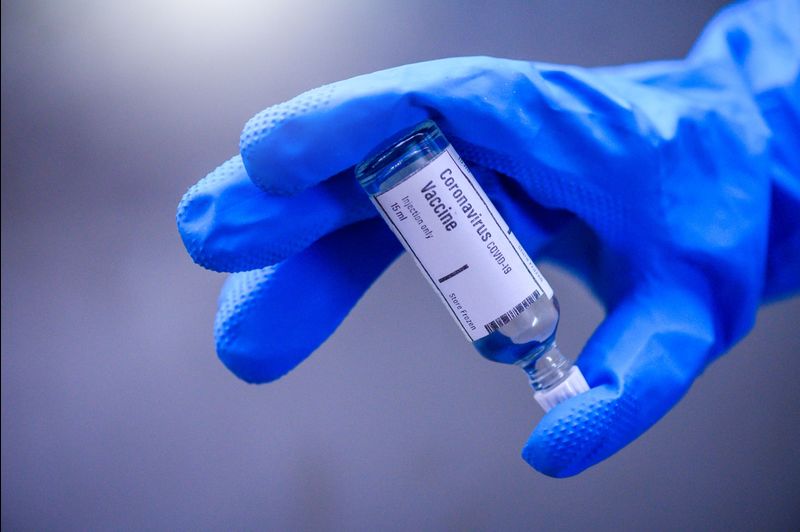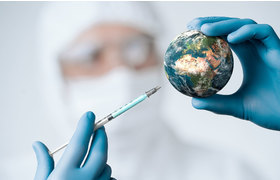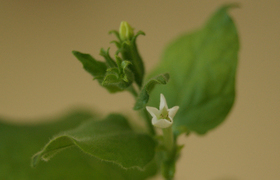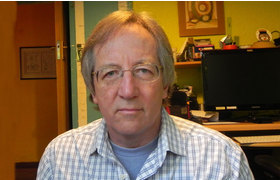UCT joins search for COVID-19 vaccine
26 August 2020 | Story Niémah Davids. Photo Getty Images. Read time 7 min.
South Africa has joined global counterparts in search for a COVID-19 vaccine and the University of Cape Town (UCT) is lending a hand, participating in three international trials in the country, alongside several other universities.
According to Professor Linda-Gail Bekker, the deputy director of the Desmond Tutu HIV Centre at UCT’s Institute of Infectious Disease and Molecular Medicine (IDM), more COVID-19 vaccine candidates will soon be available for clinical trials in the country.
Professor Bekker said that a Johnson & Johnson product, Ad26.COV2-S, and a Novavax product, NVX-CoV2373, will both be trialled in the country as of next month. Bekker is the national principal investigator of the Johnson & Johnson trial alongside Professor Glenda Gray, the president and chief executive of the South African Medical Research Council and the protocol chairperson of this trial.
“It is very important for South Africa to participate [in vaccine trials] because we can contribute to the global cause.”
The latest developments come in the wake of South Africa’s first COVID-19 vaccine trial, ChAdOx1 nCoV-19, led by the University of the Witwatersrand’s Professor Shabir Madhi in partnership with Oxford University, and executed in association with the UCT Lung Institute (one of several trial sites in the country) under the guidance of UCT’s Professor Keertan Dheda, the head of the Centre for Lung Infection and Immunity at the UCT Lung Institute.
“It is very important for South Africa to participate [in vaccine trials] because we can contribute to the global cause, and it helps scientists understand how South Africans will respond to these [vaccine] candidates,” Bekker said.
“It also gives us an opportunity to investigate if there are any safety concerns and, importantly, to claim the vaccines once [they have] found to be effective and rolled out.”
‘Timing is everything’
Bekker said that scientists are only able to test the efficacy and safety of vaccine candidates in an area where the virus is currently circulating or being transmitted. Therefore, eligible candidates, aged 18 years and older, who live and work in COVID-19 hotspot areas have been identified as primary participants.
“If we are to participate, we need to do it while there are ongoing COVID[-19] infections in the general community and select participants who are most at risk of exposure to COVID-19. Timing is everything in this process.”
The process is straightforward. Participants are injected into one or both arms with either a placebo or the potential SARS-CoV-2 vaccine at a trial site approved to conduct the study. Trials are double-blinded, which means that both the scientist and participant are unaware of who received the placebo or the potential vaccine.
“We hope the vaccine will be safe and well tolerated [by participants].”
Participants are then asked to return to trial sites at various intervals for blood tests that enable immunogenicity studies. This helps scientists to determine how the body’s immune system is reacting to the vaccine. Using these blood samples, scientists can also monitor candidates for signs of COVID-19, other illnesses and potential harmful side effects.
Should a participant develop COVID-19 during the process, Bekker said that scientists will monitor the candidate closely to help them determine the progression and severity of the virus. In conclusion, researchers will conduct a comparison study to determine the number of participants who received the vaccine candidate and contracted the virus and compare this with those who received the placebo.
“This tells us then what the vaccine efficacy is,” she said.
“We hope the vaccine will be safe and well tolerated [by participants] and that it will eventually reduce the number of COVID[-19] cases on a much bigger scale.”
‘Viable’ trials
Scientists are hopeful that more than one of the vaccine candidates will yield some positive results since multiple vaccine platforms are currently under investigation.
The Johnson & Johnson vaccine candidate, Bekker explained, is based on a vector (harmless carrier) approach whereby the antigen (immunogenic component) is inserted into an adenovirus 26 vector.
The vaccine candidate uses the vector to deliver the SARS-CoV-2 spike protein into host cells where it stimulates the body to raise immune responses against COVID-19. Adenovirus 26, she said, is a well-known and trusted candidate that causes mild cold-like symptoms in humans and has been an effective vector for vaccine candidates for Ebola and the Zika virus.
“And here in South Africa, as we speak, it’s also being evaluated as a potential [vaccine] candidate for HIV.”
“And here in South Africa, as we speak, it’s also being evaluated as a potential [vaccine] candidate for HIV. So, we are old friends with this approach.”
Pre-clinical trials on the Johnson & Johnson and Novavax vaccine candidates have shown positive immune responses during earlier phases, which included testing its effectiveness on animals.
The three vaccines currently being evaluated in South Africa have been included on the World Health Organization’s list of 26 most viable candidate vaccines to enter human clinical trials. Bekker said that the Johnson & Johnson trial is currently in phase three and officially kick-starts in the country next month. The Novavax and Oxford trials are both in phase two, with phase three trials planned to start within weeks.
“Typically, phase two involves hundreds of participants and phase three involves thousands,” she said.
Participation is paramount
According to Professor Dheda, participating in vaccine trials is critical.
He said that it is especially important for South Africa to get involved because of the country’s diverse genetic background, which will count in scientists’ favour as they work to establish how well different ethnic groups globally respond to the vaccine, and if they do so in the same manner.
“The immune systems of participants in African countries have greater exposure to environmental bacteria and parasites,” Dheda said.
The UCT Lung Institute is recruiting participants in the Western Cape to facilitate both screening and vaccinating for the Novavax and ChAdOx1 nCoV-19 vaccine product trials. At the end of the process, Dheda said that the data will be collated to determine the efficacy of both vaccines.
“We need to take an active interest in our future to determine if the vaccine will work in our setting. It may also facilitate vaccine access for South Africans. Historically, it has taken several years for vaccines to reach Africa,” he said.
“More than that, our participation will also help to mitigate the COVID-19 stigma.”
 This work is licensed under a Creative Commons Attribution-NoDerivatives 4.0 International License.
This work is licensed under a Creative Commons Attribution-NoDerivatives 4.0 International License.
Please view the republishing articles page for more information.










